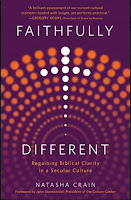“For it is by grace you have been saved, through faith—and this is not from yourselves, it is the gift of God— not by works, so that no one can boast. For we are God’s handiwork, created in Christ Jesus to do good works, which God prepared in advance for us to do” (Eph 2:8-10).
Whenever we start talking about the need to obey, people start wondering whether we’re exchanging grace for works. God forbid! We are saved by grace, and no one will be able to boast that they did anything to merit salvation. But we were saved for good works. We were called to a godly life.
Some people don’t let that concern them. That should concern them. Faith that saves produces good works. The apostles took this quite seriously.
“What good is it, my brothers and sisters, if someone claims to have faith but has no deeds? Can such faith save them? Suppose a brother or a sister is without clothes and daily food. If one of you says to them, “Go in peace; keep warm and well fed,” but does nothing about their physical needs, what good is it? In the same way, faith by itself, if it is not accompanied by action, is dead” (James 2:14-17).
“We know that we have come to know him if we keep his commands. Whoever says, ‘I know him,’ but does not do what he commands is a liar, and the truth is not in that person. But if anyone obeys his word, love for God is truly made complete in them. This is how we know we are in him: Whoever claims to live in him must live as Jesus did” (1John 2:3-6).
“Therefore, brothers and sisters, we have an obligation—but it is not to the flesh, to live according to it. For if you live according to the flesh, you will die; but if by the Spirit you put to death the misdeeds of the body, you will live” (Rom 8:12-13).
“As a prisoner for the Lord, then, I urge you to live a life worthy of the calling you have received. ... So I tell you this, and insist on it in the Lord, that you must no longer live as the Gentiles do...” (Eph 4:1, 17).
Faith produces works. Grace transforms. A life given to Jesus is a life lived like Jesus for Jesus. We do it not to earn God’s favor but to show our gratitude for God’s grace. And we do it because the Jesus who died for us expects us to live for him.
Image via Pixabay
Part of Christianity 102
It’s normal, even healthy, to ask hard questions about your faith. We live in a world that constantly tries to make you do just that, but the world wants you to despair over the questions and walk away from your faith because your faith makes them feel bad. It’s not about you, it’s about them. You’re not supposed to come out the other side with a stronger, more vibrant faith. You’re supposed to walk away from your faith entirely — or at least turn it into something that’s more acceptable to them. So you’ll find lots of encouragement to surrender to doubt and give up.
I want to share some encouragement to address your doubts and stand strong in your faith. These ten steps come from Natasha Crain’s Faithfully Different, which I just reviewed.
1. “Be honest with yourself about the nature of truth.”
“May he strengthen your hearts so that you will be blameless and holy in the presence of our God and Father when our Lord Jesus comes with all his holy ones” (1Thes 3:13).
Why is it important to live a godly life? Here are a few reasons.
God said so: “But just as he who called you is holy, so be holy in all you do; for it is written: ‘Be holy, because I am holy’” (1Pet 1:15-16) and “without holiness no one will see the Lord” (Heb 12:14). He commands that we be imitators of his holiness. He has set us apart for himself; he expects that we will come out and be separate, to cease to live like the people around us.
To make the gospel attractive: “Let your light shine before others, that they may see your good deeds and glorify your Father in heaven” (Matt 5:16). So many people have closed their ears to the gospel because of the behavior of alleged Christians. May that never be said of us. Instead, let us live in a way that will “make the teaching about God our Savior attractive” (Titus 2:10).
Out of love for Jesus: “If you love me, keep my commands. .... Whoever has my commands and keeps them is the one who loves me” (John 14:15, 21). It’s been said that obedience is God’s love language, and that’s probably true, but Jesus says more than that. Obedience isn’t just how you love him; it is the sign that you love Jesus. Don’t tell him that you love him; show him.
As a response to God’s mercy: “Therefore, I urge you, brothers, in view of God’s mercy, to offer your bodies as living sacrifices, holy and pleasing to God—this is your spiritual act of worship” (Rom 12:1). The only sensible response to what God has done for us is to give ourselves to him, body and soul. And he wants the whole person. A sacrifice was the dedication of an entire animal to God. He wants us to be living sacrifices; he wants all of us, but he wants our life, not our death. This is real worship. If we do not do this, God isn’t interested in anything else. “To obey is better than sacrifice, and to heed is better than the fat of rams” (1Sam 15:22).
We associate worship with music. And God calls for and deserves that:
I will sing of your love and justice;
to you, LORD, I will sing praise.
I will be careful to lead a blameless life ... (Psalm 101:1-2)
But the worship God most desires is obedience given in response to who he is and what he has done. Telling the truth when it would be easier to lie, helping someone when it would be easier to pretend you didn't see — this is the worship God desires.
Image via Pixabay
Part of Christianity 102

That’s over now. The bubble has popped, and the real world is rushing in on us. How are we going to respond? We will only maintain a biblical view of truth and morality if we’re very intentional about it.
That’s the purpose behind Natasha Crain’s new Faithfully Different: Regaining Biblical Clarity in a Secular Culture. You may recognize her name from her three books about discipling your kids. This one is primarily focused on you, but your kids need this too.
Her message is that it’s no longer normal to be a traditional Christian in our culture. Secularism is the way everyone thinks now. Secularism isn’t just not-religion; it is very specific assumptions about the world and the way things ought to be. And these ideas are very seductive, even for Christians. However, if we’re careful and intentional, we can maintain (or, if necessary, regain) the biblical worldview, which includes the supernatural, meaning determined by our creator, and objective moral truth. She lays out the biblical view on things we ought to believe, how we should think, and the way we ought to live. Each chapter ends with some recommended reading for those wanting to explore the topic further and questions for discussion or reflection (good for private meditation or group discussion).
There is a lot of good stuff here, but the thing that makes this book unique is where Natasha applies her marketing background to the way secularism slowly wins people over to its way of thinking. It’s insidious. And perfectly organic. It appeals to what fallen humans want and pressures those who resist. Being aware of it will help you defend yourself against it and reaffirm biblical morality. This chapter is worth the purchase price for the book.
This is one for parents and non-parents, for college kids and pastors. The church needs to figure out how to resist the secularizing forces in our culture. The world is starting to push on us in a way it hasn’t before in the West. We will be conformed to the pattern of this world if we do not take steps to push back. And if we fall, will our kids be able to resist? Take up and read!
Bubble image via Pixabay
“We remember before our God and Father your work produced by faith, your labor prompted by love, and your endurance inspired by hope in our Lord Jesus Christ” (1Thes 1:3).
Christianity 101 was about what we believe, why, and what difference it should make. In this series I want to double down on that last part. God forbid that anyone should think it only matters what we believe and not how we live! If we really believe what we say we believe, it should spur us on to a godly life.
All of this flows out of the doctrine of creation. We are created in the image of God to reflect him to the world around us. That is why we’re here, and we are most fully human when we live out that purpose.
That doctrine also tells us God knows how he made us and what makes us truly thrive. God’s rules are not “loud music annoys me” but “look both ways before crossing the street.” They are not meant to be meddlesome but protective, so we should embrace them as a gift from a loving God.
This is not going to be a treatment of Christian ethics. There are lots of good books on that subject already. If you want to learn about just war, reproductive technologies, or capital punishment, read one of those. I will be focusing on the life the world needs to see us live day in and day out.
This is also not going to cover every biblical command. You know not to lie, steal or commit murder. I want to remind us of the commands we like to forget or look at where the commands go farther than we sometimes realize.
Because God does care how we live. And because the people around us need to see that the gospel we proclaim really does make a difference in our lives.
Image via Pixabay
Part of Christianity 102





